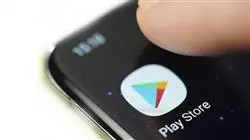University certificate
The world's largest faculty of design”
Why study at TECH?
Having in-depth knowledge of the emerging technologies and agile project management methods will turn you into a Digital Product Designer"

The enormous social, cultural and economic changes that have occurred due to digitalization have also affected areas such as Design. Therefore, nowadays, no business, commercial or artistic project is conceivable without perfect knowledge of its integration within the Internet and the digital environment. For this reason, specialist designers are increasingly in demand in initiatives where digital product design is required.
This new situation has forced many professionals to update their knowledge, and this Postgraduate diploma has been developed specifically to provide them with the opportunity to learn about the latest innovations in this area. Therefore, throughout the program, the designer will be able to delve into issues such as design applied to mobile technologies, the Internet of Things and its integration into daily personal and work life or agile methodologies in project entrepreneurship.
With this knowledge, the student will have the opportunity to position themselves as a leading figure in the field of design, being able to aspire to work for large companies and institutions in this sector. All this, through TECH's online learning system and numerous multimedia materials, which will facilitate the teaching of these innovative contents.
This program will make you a specialist in the carrying out projects focused on Digital Product Design. Don't miss the opportunity to access a highly sought-after professional field and enroll with us now”
The Postgraduate diploma in Digital Product Design Projects contains the most complete and up-to-date educational program on the market. The most important features include:
- The development of case studies presented by experts in Digital Product Design
- The graphic, schematic and eminently practical contents with which they are created, provide scientific and practical information on the disciplines that are essential for professional practice
- Practical exercises where the self-assessment process can be carried out to improve learning
- Special emphasis on innovative methodologies
- Theoretical lessons, questions to the expert, debate forums on controversial topics, and individual reflection assignments
- Content that is accessible from any fixed or portable device with an Internet connection
Digital Product Design is one of the most booming fields today and this program gives you the opportunity to become a professional with great job prospects"
The program’s teaching staff includes professionals from the sector who contribute their work experience to this program, as well as renowned specialists from leading societies and prestigious universities.
The multimedia content, developed with the latest educational technology, will provide the professional with situated and contextual learning, i.e., a simulated environment that will provide an immersive program designed to learn in real situations.
This program is designed around Problem-Based Learning, whereby the professional must try to solve the different professional practice situations that arise during the academic year. For this purpose, the student will be assisted by an innovative interactive video system created by renowned and experienced experts.
The online methodology used in this program will allow you to combine your work with your studies, without being fixed to strict schedules or having to commute"

You will have access to the latest contents in this field of design, presented in a multimedia format to facilitate learning efficiency"
Syllabus
The great advances that the field of design has experienced in recent years have led to the development of this program, with which the professional will find all the answers to the current challenges of the creation of Digital Products. Therefore, through this Postgraduate diploma, the designer will delve into issues such as user experience, extended reality, design applied to the Internet of Things and the best project management methods. Then, with this knowledge, the student will be prepared to enter and succeed in a booming professional sector.

Through 3 specialized modules, you will learn all the keys to carry out the best Digital Product Design Projects"
Module 1. Emerging Technologies
1.1. Mobile Technology
1.1.1. Mobile Devices
1.1.2. Mobile Communications
1.2. Mobiles Services
1.2.1. Types of Applications
1.2.2. Decision on the Type of Mobile Application
1.2.3. Mobile Interaction Design
1.3. Services Based on Localization
1.3.1. Services Based on Localization
1.3.2. Technologies for Mobile Localization
1.3.3. GNSS-Based Localization
1.3.4. Precision and Accuracy in Localization Technologies
1.3.5. Beacons: Location by Proximity
1.4. Design of User Experience (UX)
1.4.1. Introduction to User Experience (UX)
1.4.2. Technologies for Mobile Localization
1.4.3. Methodology for UX Design
1.4.4. Best Practices in the Prototyping Process
1.5. Extended Reality
1.5.1. Concepts of Extended Reality
1.5.2. Technologies for Mobile Localization
1.5.3. AR and VR Application and Services
1.6. Internet of Things (IoT) (I)
1.6.1. Fundamentals of IoT
1.6.2. IoT Devices and Communications
1.7. Internet of Things (IoT) (II)
1.7.1. Beyond Cloud Computing
1.7.2. Smart Cities
1.7.3. Digital Twins
1.7.4. IoT Projects
1.8. Blockchain
1.8.1. Fundamentals of Blocks Chain
1.8.2. Applications and Services Based on Blockchain
1.9. Autonomous Driving
1.9.1. Technology for Autonomous Driving
1.9.2. V2X Communication
1.10. Innovative Technology and Research
1.10.1. Fundamentals of Quantum Computing
1.10.2. Applications of Quantum Computing
1.10.3. Introduction to Research
Module 2. Internet of Things (IoT)
2.1. Cyber-Physical Systems (CPS) in the Industry 4.0 Vision
2.1.1. Internet of Things (IoT)
2.1.2. Components Involved in IoT
2.1.3. Cases and Applications of IoT
2.2. Internet of Things and Cyber-Physical Systems
2.2.1. Computing and Communication Capabilities to Physical Objects
2.2.2. Sensors, Data and Elements in Cyber-Physical Systems
2.3. Device Ecosystem
2.3.1. Typologies, Examples and Uses
2.3.2. Applications of the Different Devices
2.4. IoT Platforms and their Architecture
2.4.1. IoT Market Typologies and Platforms
2.4.2. Operation of an IoT Platform
2.5. Digital Twins
2.5.1. Digital Twin
2.5.2. Uses and Applications the Digital Twin
2.6. Indoor & Outdoor Geolocation (Real Time Geospatial)
2.6.1. Indoor and Outdoor Geolocation Platforms
2.6.2. Implications and Challenges of Geolocation in an IoT Project
2.7. Security Intelligence Systems
2.7.1. Typologies and Platforms for Security Systems Implementation
2.7.2. Components and Architectures in Intelligent Safety Systems
2.8. IoT and IIoT Platform Security
2.8.1. Security Components in an IoT System
2.8.2. IoT Security Implementation Strategies
2.9. Wearables at Work
2.9.1. Types of Wearables in Industrial Environments
2.9.2. Lessons Learned and Challenges in Implementing Wearables in the Workplace
2.10. Implementing an API to Interact with a Platform
2.10.1. Types of APIs Involved in an IoT Platform
2.10.2. API Market
2.10.3. Strategies and Systems to Implement API Integrations
Module 3. Agile Methodologies
3.1 Agile Management of Projects. Foundation for the Development of Web Applications
3.1.1. The Agile Approach
3.1.2. Values and Agile Principles
3.1.3. Project Management Traditional and Agile
3.1.4. The Agile Model for Project Management
3.1.5. Agile Methodologies
3.2. Adopting an Agile Approach to Web Application Development
3.2.1. Myths and Realities about Agility
3.2.2. Agile Practices
3.2.3. Choosing Agile Practices for a Project
3.2.4. Development of an Agile Mentality
3.2.5. Implementing and Communicating the Adoption of Agile Principles
3.3. Agile Methodologies for Web Application Development
3.3.1. Lean Development
3.3.2. Extreme Programming (XP)
3.3.3. Crystal Methods
3.3.4. Feature Driven Development (FDD)
3.3.5. DSDM and Agile Unified Process
3.4. Agile Methodologies for Advanced Web Application Development
3.4.1. Kanban Method
3.4.2. Scrum and Scrumban
3.4.3. DA Disciplined Agile
3.4.4. Hybrid Methodologies
3.4.5. Comparison of Agile Methodologies
3.5. Web Development Project Planning Process
3.5.1. Starting an Agile Project
3.5.2. Process of Agile Planning
3.5.3. Requirements Gathering and User Stories
3.5.4. Project Scoping Using Agile Methods: Product Backlog
3.5.5. Agile Tools to Prioritize Requirements
3.6. Stakeholders of Agile Projects for Web Application Development
3.6.1. Stakeholders in Agile Projects
3.6.2. Encouraging Effective Stakeholder Engagement
3.6.3. Participatory Decision Making
3.6.4. Agile Knowledge Sharing and Agile Knowledge Gathering
3.7. Launching Plan and Creation of Estimates
3.7.1. Launching Plan
3.7.2. Estimating the Size of the User Story
3.7.3. Speed Estimation
3.7.4. Agile Estimation Techniques
3.7.5. Prioritization of User Stories
3.8. Planning and Monitoring Iterations
3.8.1. Iteration and Progressive Development
3.8.2. Iteration Planning Process
3.8.3. Creating the Iteration Backlog
3.8.4. The Agile Schedule and Buffers
3.8.5. Iteration Progress Tracking
3.8.6. Release Progress Tracking and Reporting
3.9. Leading a Web Application Development Team
3.9.1. Agile Teams
3.9.2. The Leader of an Agile Project
3.9.3. The Agile Team
3.9.4. Virtual Agile Team Management
3.9.5. Coaching for Team Performance Improvement
3.10. Managing and Delivering Value in Web Development Projects
3.10.1. Processes for Value-Centered Delivery
3.10.2. The Quality of the Product
3.10.3. Agile Practices of Quality
3.10.4. Risk Management
3.10.5. Agile Contracts
3.10.6. Earned Value Management in Agile Projects

This program will prepare you to become a reference in Product Design, providing you with the essential tools to effectively manage projects in this professional field"
Postgraduate Diploma in Digital Product Design Projects
At TECH Global University, we offer you the opportunity to become an expert in the exciting field of digital product design with our Postgraduate Diploma in Digital Product Design Projects program. Through our online classes, you will be able to acquire the skills necessary to create innovative and functional digital products. Online classes are the most convenient and flexible way to learn, because you will not have to travel every day to a physical location, but you will have all the tools at hand. You will be able to access the content of the program from the very beginning, learning at your own pace. In our program, you will be immersed in a comprehensive curriculum that covers everything from advanced product design fundamentals to the most commonly used methodologies and tools in the industry. You will learn how to identify user needs and desires, generate innovative ideas, prototype and test your designs, and create intuitive and engaging user experiences. This is the most enriching path you can find to achieve the longed-for dream of professional success.
Learn about Digital Product Design with the best
At TECH Global University, we have a team of highly qualified and experienced teachers in the field of digital product design. They will guide you throughout the program, giving you personalized feedback and sharing their knowledge and best practices so you can excel in this constantly evolving field. Don't miss the opportunity to boost your career in digital product design. Enroll in our Postgraduate Diploma program in Digital Product Design Projects at TECH Global University and acquire the skills you need to create impactful and successful digital products. Get ready to stand out in the design industry and make a difference with your creations!







